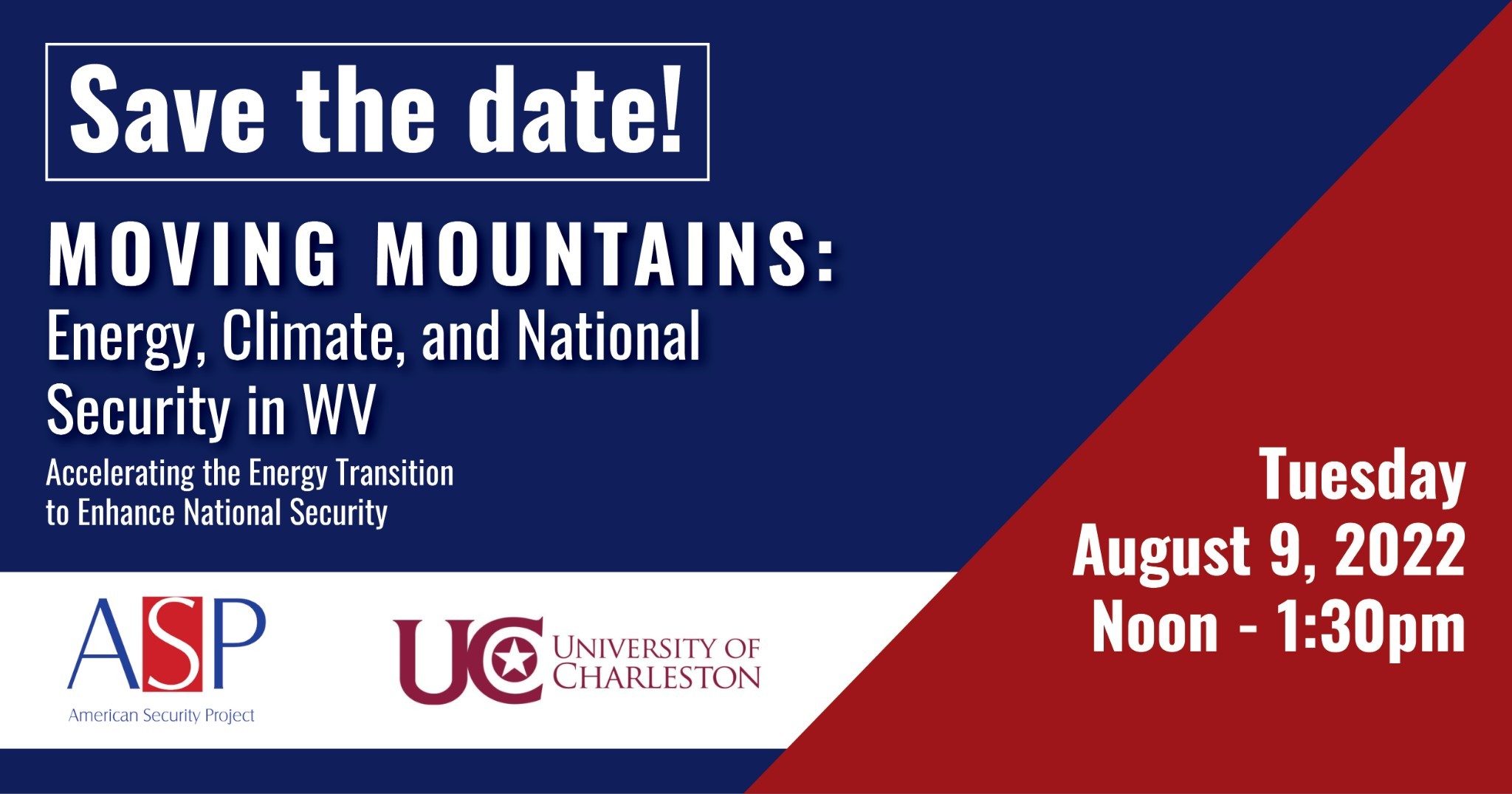
Event Recap: Moving Mountains: Energy, Climate, and National Security in West Virginia
On August 9th, 2022, the American Security Project hosted an event with the University of Charleston entitled “Moving Mountains: Energy, Climate, and National Security in West Virginia.” Retired generals Bob Barnes, a member of ASP’s Consensus for American Security, and John E. Barnette, Professor and Associate Dean at the University of Charleston; USDA West Virginia State Director Ryan Thorn; West Virginia House of Delegates Representative Evan Hansen (Monongalia); Coalfield Development CEO Brandon Dennison; and Briggs White, the deputy executive director of the Biden Administration’s Interagency Working Group on Coal and Power Plant Communities and Economic Revitalization, examined the prospects, challenges, and opportunities for implementing renewable energy platforms in West Virginia as well as the energy, climate, and national security implications of the green transition.
In 2019, West Virginia ranked fifth nationwide in total energy production, but 84% of that energy was generated from coal mining. To meet the dual national imperatives of energy security and carbon emission mitigation, West Virginians have pioneered inventive land reclamation projects that repurpose the grid networks and shaped landscapes of dormant West Virginia mountaintop mines to support solar farms. Panelists also discussed the value of diversifying West Virginia’s energy portfolio. The panel noted that although many West Virginians feel resistant to curtailing the coal industry, they possess portable skills that can be equally applicable to lucrative electric vehicle manufacturing and solar array installation projects that simultaneously serve broader national energy and climate objectives.
The panel then explored the linkage of energy security, climate security, and national security. West Virginia is already feeling the effects of climate change-induced extreme weather phenomena such as severe floods that demand the response of National Guard units while also imperiling bases, ports, and airfields, all of which ultimately strain military readiness. Pivoting, the panel highlighted the national security benefits of renewable energy. Electric engines fueled by solar power, for instance, offer strategic and tactical advantages in the form of reduced logistical burdens and a lower heat and noise signature.
Finally, the panel reiterated the need for more initiatives and technical assistance for environmental justice and climate justice communities to deliver federal funding for renewable energy development in rural West Virginia communities. The future of clean energy in West Virginia will play a critical role in the national energy discussion and how it can help enhance U.S. national security, with West Virginia potentially serving as a model for all of Appalachia.





